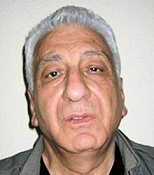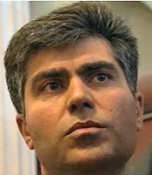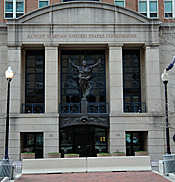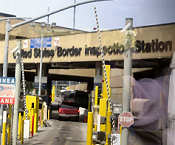 SEE IMPORTANT UPDATE AT THE END OF THIS POST
SEE IMPORTANT UPDATE AT THE END OF THIS POST
The headline to this post — “Voluntary Disclosure Leads to Criminal Prosecution” — will probably send a chill down the spine of every export and sanctions lawyer who reads this post. How many times have all of us said to clients that, although there is no guarantee, voluntary disclosures almost never lead to criminal prosecutions? After the guilty plea today of Innospec, Inc., arising from sales of fuel additives to Cuba by Innospec’s former Swedish subsidiary Bycosin AB to Cuban power companies, we won’t be able to say that voluntary disclosures almost never lead to criminal prosecutions without mentioning that in Innospec’s case it did.
According to a Department of Justice press release, the guilty plea for the Cuba embargo violations* was part of a larger plea agreement which included guilty pleas by Innospec to charges under the Foreign Corrupt Practices Act (“FCPA”) that it had bribed Iraqi officials in connection with sales of tetraethyl lead to Iraqi fuel refineries. That press release also noted:
According to the plea agreement, Innospec also admitted that a subsidiary sold nearly $20 million in oil soluble fuel additives from 2001 to 2004 to state-owned Cuban power plants without a license from OFAC, in violation of the Trading With the Enemy Act. … Innospec agreed to pay $2.2 million to resolve outstanding matters with the [sic] OFAC related to the U.S. embargo against Cuba.
Further details about the Cuba sales can be found in an SEC Form 10-Q filed by Innospec in 2006. That 10-Q notes that Innospec, in a routine internal audit of sanctions compliance conducted in 2004, discovered that Bycosin AB, a Swedish subsidiary it acquired in 2001 had been selling fuel additives to Cuba. Innospec shortly thereafter sold Bycosin and, undoubtedly as part of the sales agreement, filed a voluntary disclosure with OFAC detailing the sales to Cuba by Bycosin.
As a result of additional internal investigations, Innospec made a further disclosure to OFAC of sales to Cuba by one of its U.S. subsidiaries as well as by a French subsidiary. The company also disclosed that a subsidiary of Bycosin maintained an office in Cuba in connection with its sales activities in Cuba and that employees of one of Innospec’s U.S. subsidiaries traveled to Cuba twice in connection with the Cuban sales. Innospec’s 10-Q noted, not surprisingly, that E.U. Council Regulation No. 2271/96 made it illegal for the company’s E.U. subsidiaries to comply with the U.S. embargo on Cuba.
It’s not clear why any of this would justify turning a routine voluntary disclosure to OFAC into a criminal prosecution by DOJ, particularly in light of the fact that the activities of the foreign subsidiaries were compelled by the E.U. directive. Perhaps the differentiating factor here is that the company was also engaged in FCPA violations and the Cuba sanctions charges were simply piled on by the DOJ as a negotiating tactic with Innospec. Still this prosecution is bound to have a chilling effect on voluntary disclosures to OFAC.
*UPDATE: When this item was posted last night, the Innospec plea agreement had not yet been made available on PACER. A friend of mine at DOJ emailed me to note that the plea agreement recited the TWEA violations but that Innospec was not charged with TWEA violations and was only charged with the FCPA violations. The DOJ press release on which I relied did not make this clear. A copy of the plea agreement can be downloaded or viewed here.
Even with this clarification, I am still disturbed that information provided in a voluntary disclosure would be used at all in connection with a criminal prosecution, particularly where it is used with the implicit threat that criminal charges would be filed on the disclosed matters if the discloser did not settle the other criminal charges.

 Posted by
Posted by  Category:
Category: 



 Virginia-based Taipan Enterprises Ltd. pleaded guilty to, and paid a $15,000 fine for, charges that it illegally engaged in arms-brokering without registering with, and obtaining licenses from, the Directorate of Defense Trade Controls (“DDTC”). The
Virginia-based Taipan Enterprises Ltd. pleaded guilty to, and paid a $15,000 fine for, charges that it illegally engaged in arms-brokering without registering with, and obtaining licenses from, the Directorate of Defense Trade Controls (“DDTC”). The  Two men, one in Texas and one in New Jersey, have pleaded guilty to violations of
Two men, one in Texas and one in New Jersey, have pleaded guilty to violations of 

